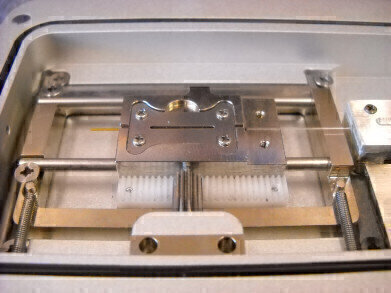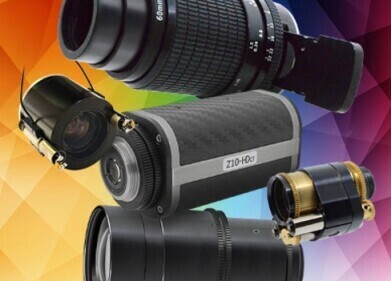Microscopy & microtechniques
Innovative Heating Stage used for extreme Deep Sea Research
Nov 06 2013
A new modern hydrothermal laboratory is being built as part of the new Sanya Institute of Deep-sea Science and Engineering (SIDSSE), a division of the Chinese Academy of Geological Sciences.
Dr I-Ming Chou, a leading scientist behind the creation of the SIDSSE laboratory, and his colleagues are using the CAP500 stage to conduct experimental studies of extreme deep-sea conditions. He said: "The recent successful dive of manned submersible Jiaolong at the depth of 7062m was one of the major scientific achievements of China. This accomplishment provided us with great opportunities for exploring the sea floor, especially the hadal zones that have previously been inaccessible to us."
To further their geological research the scientists are using the prototype Linkam CAP500 stage. The CAP500 system can control up to 50mm of quartz capillary at high pressure (600bar) from -196°C to 500°C. In relation to the stage Dr Chou said: "We are beta testing this system with a number of different labs at the moment. Sample temperatures are controlled using a T95 controller with a T95 LinkPad and LNP95 cooling system through Linksys32 temperature control and video capture software. A capillary tube of HPOC can be inserted into a channel of a silver block. Optical cells have fused silica windows for the study of geological fluids. A small aperture through the centre of the stage, allows samples to be viewed with transmitted light while its design minimises the temperature gradient along its length."
Dr Chou noted: "The simulated pressure-temperature conditions we can create using the CAP500 will cover hydrothermal vents, hadal zones, and trenches. A major advantage of the high-pressure optical cells is the transparency of its windows. Using optical cells allows us to not only observe many geological processes at higher P-T conditions, but also characterise geological samples in the cells by using advanced spectroscopic tools, including Raman spectroscopy and synchrotron X-ray spectroscopy."
When asked about the stage, Dr Chou said: "The stage has the following advantages for the study of geological fluids at P-T conditions up to 500°C and 600bar: it has (1) fluid samples which are easy to load; (2) greater Raman signal intensity; (3) sample pressures which can be measured directly when the HPOC is used; and is (4) easy to operate; and (5) less expensive than other systems on the market."
Digital Edition
Lab Asia Dec 2025
December 2025
Chromatography Articles- Cutting-edge sample preparation tools help laboratories to stay ahead of the curveMass Spectrometry & Spectroscopy Articles- Unlocking the complexity of metabolomics: Pushi...
View all digital editions
Events
Jan 21 2026 Tokyo, Japan
Jan 28 2026 Tokyo, Japan
Jan 29 2026 New Delhi, India
Feb 07 2026 Boston, MA, USA
Asia Pharma Expo/Asia Lab Expo
Feb 12 2026 Dhaka, Bangladesh

.jpg)
-(2).jpg)
















